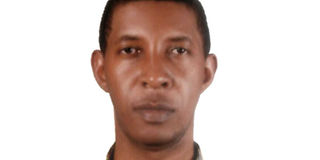Bloody economics: Why govt should invest more in bio-medical research

Francis Kiweewa
What you need to know:
- Our sole future. If we will achieve the overall goal of sustainable social and economic transformation of our country, we also need to support the youngsters yearning for clinical research careers; they are our sole future for better health and un-challengeable medical knowledge.
A sustainable social and economic transformation of the Ugandan community is a dream of every Ugandan, leaders, development partners and well wishers. But what will drive a steadfast campaign towards this dream? Will it be education, political stability, employment, agricultural investment or technological advancement? In many instances, when a question like this is posed very few people, including the key development players can ever think about the contribution of bio-medical research in speeding up and as well supporting the economic and social transformation of our society.
Paradoxically, we are living in an era of increasingly scarce financial support and respect for those that have chosen a career in research. Though sad, but truth is that 80 per cent of the funds that support biomedical research in Uganda are donor dependent funds. This begs the question, does the government really appreciate the value of biomedical research in transforming society? Are we comfortable and should we continue to rely on another country’s taxpayers’ dollars to drive our research agenda? Whose interests shall we be serving? The consistent lack of biomedical research funds to Ugandan scientists creates uncertainties in the field, thereby keeping away the best brains and innovativeness.
So, in this era of research funding uncertainties, it is worth pondering why biomedical research stands as a crucial pillar in the social and economic transformation of the country and also why we cannot do without it in completing the nation’s growth and development puzzle. This, therefore, is a call for government and taxpayers in Uganda to begin paying attention to the priceless worth of bio-medical research in the social and economic transformation of Uganda.
We have come a long way as scientists in the past three decades. Bio-medical research power houses like Makerere University Walter Reed Project (MUWRP) and many others spread across the country have helped to prove that high quality international level research is feasible in Uganda. Research findings from such research institutions has already been informing policies and guidelines globally to keep communities health and economically productive.
A socially and economically stressed nation is a country that is not able to provide equitable healthcare access to its people, whose countrymen and women worry and continuously battle with diseases, especially the preventable ones, or a nation that is unable to provide evidence-based solutions to these disease burdens, among others. Such a nation cannot grow economically because even the young and intelligent brains that would support the country’s economy through creative establishments and innovations would collapse due to uncontrollable epidemics like HIV, Ebola and other infectious and non-communicable diseases. This is what makes bio-medical research very relevant. Without it, little would be known about the infectious and non-communicable diseases that have claimed the lives of millions of Ugandans.
Every patient treatment, every diagnostic test, and every medical intervention that is in use today is the result of countless biomedical research discoveries, some made in the distant past and many outside of Uganda. We rely on these documented medical experiments to determine the precise cause of ailments and rescue the nation’s brains on whom the future of this country rests. In the absence of biomedical research, we cannot provide any hope for the growing list of epidemics some of which their cause and infection dynamics remain unexplainable.
If we will achieve the overall goal of sustainable social and economic transformation of our country, we also need to support the youngsters yearning for clinical research careers; they are our sole future for better health and un-challengeable medical knowledge. We cannot leave them to be brutally faced with the medical challenges of the future; learning from knowledge solely based on discoveries of the past or distant contexts.
Uganda needs to have its future and present clinicians informed by research insights garnered today and in their own context. Therefore, the continuity of current and future medical/clinical discoveries is only conditioned to continued support for biomedical research, not only from international donors but also from Uganda’s national budget.
Bio-medical research should therefore be a critical part of the social and economic transformation agenda. We need a future where emphasis on research is a responsibility of all stakeholders including the political leadership. A future where Uganda’s bio-medical scientists continue to meaningfully contribute to keeping Uganda’s and the global citizenry free of most diseases.
Dr Kiweewa is the head of research and scientific affairs at Makerere University Walter Reed Project.




